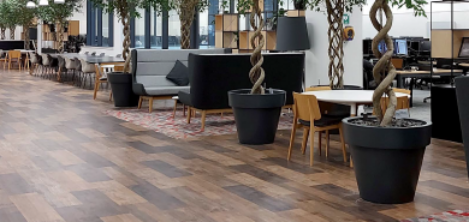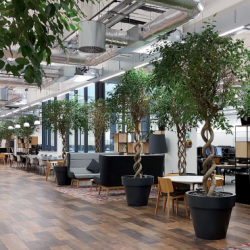March 29, 2023
Leesman partners with MIT Center for Real Estate to explore long term impact of hybrid working
 Workplace analyst Leesman has joined the MIT Center for Real Estate (MIT/CRE) as a Strategic Partner and will be working with its Real Estate Transformation Lab to examine issues related to hybrid working. This collaboration will support Leesman’s three year investigation into the impact of hybrid working on people, places and societies. The Leesman project, entitled ‘The Hybrid Future’, will survey over 10,000 participants from around the world, to explore the impact of hybrid working on everything from productivity, diversity and urban centres to the environment, wellbeing and even our love lives. With 24 surveys set to be issued every six weeks, the volume and diversity of data, length of study, and breadth of topic range, make The Hybrid Future the most comprehensive study of hybrid working ever conducted. More →
Workplace analyst Leesman has joined the MIT Center for Real Estate (MIT/CRE) as a Strategic Partner and will be working with its Real Estate Transformation Lab to examine issues related to hybrid working. This collaboration will support Leesman’s three year investigation into the impact of hybrid working on people, places and societies. The Leesman project, entitled ‘The Hybrid Future’, will survey over 10,000 participants from around the world, to explore the impact of hybrid working on everything from productivity, diversity and urban centres to the environment, wellbeing and even our love lives. With 24 surveys set to be issued every six weeks, the volume and diversity of data, length of study, and breadth of topic range, make The Hybrid Future the most comprehensive study of hybrid working ever conducted. More →



































February 10, 2023
Working parents are resilient, and a resilient team is good for business
by Erin Eatough • Comment, Wellbeing